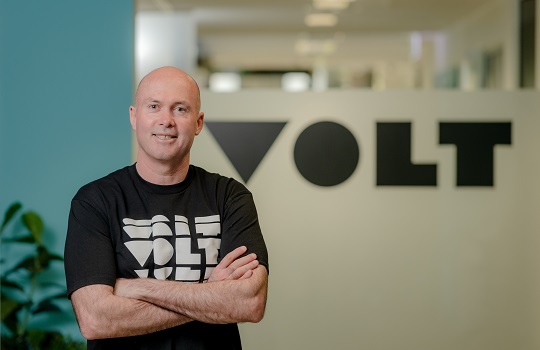
Digital bank Volt and broker network Australian Finance Group (AFG) have promised to slash home loan approval times to under an hour as part of the launch of two new consumer offerings leveraging Volt’s Banking-as-a-Service (BaaS) platform.
Four months into their working partnership, AFG, Australia’s largest mortgage broker network, with a $170 billion* loan book, and Volt have announced the release of a BaaS-powered personal finance app ‘Handl. by AFG’ as well as a new white-labelled product ‘AFG Home Loans Sparc’.
The Sparc and Handl. products are currently being trialled with a group of 125 brokers and their customers, and is expected to be rolled out to AFG’s remaining 3,050 brokers by early next year.
Sparc is available for owner occupiers and investors with LVR (loan-to-value ratio) of up to 80 per cent; it is the ninth white-label home loan in the AFG Home Loans suite, but unique in that it enables customers and brokers to complete the entire lending process digitally.
Meanwhile, Handl. by AFG, which was built using Volt’s personal finance manager solution, is intended to provide a one-stop digital hub for Sparc customers, allowing users to keep track of their budgets, financial overviews, as well as Sparc home loans.
Speaking to FST Media, AFG chief executive David Bailey said the Volt partnership was solicited with a “view to the future”, considering the emergence of Open Banking – Volt having recently been accredited as a data recipient by the ACCC – and rising consumer preferences for mobile interactions.
For him, BaaS services enabled by Volt, and the Handl. app in particular, are key to nurturing and safeguarding customer relationships for AFG brokers.
“Ultimately, we see the personal financial management tool allowing customer offers to go out to that client, allowing broker and customer to interact more digitally, and effectively apply for a home loan through the app through our technology platform,” Bailey said.
Plans for Handl. and Sparc were first made known when the two firms announced their strategic alliance in July, with AFG investing $15m in Volt, for use of its BaaS platform (which was built in partnership with Microsoft).
The digital lending component of Volt’s BaaS offering, meanwhile, leverages capabilities of neo-lender Australian Mortgage Marketplace, whose “intelligent credit” solution allows for loan approval times of under an hour, well below AFG’s average of three weeks.
Next steps for the alliance include adapting Volt’s BaaS platform to improve decision processes for AFG’s securitised division, as well as developing non-mortgage white label products and giving customers from AFG brokers access to Volt’s deposit products.
Speaking at FST Media’s Future of Financial Services, Sydney 2021 conference on Tuesday, chief executive Steve Weston revealed that Volt had been approached by over a hundred companies to date – “some larger corporates, some fintechs” – interested in BaaS services.
Volt’s BaaS platform is currently being used by cryptocurrency exchange BTC Markets for deposit accounts, as well as by UK fintech Railspay (known as Railsbank in Europe), which recently co-launched a microbusiness banking app for self-employed workers called Parpera.
Earlier this year, Railspay announced a strategic partnership with Volt, using the neobank’s infrastructure to offer local non-bank players integrated bank accounts, cards and payment solutions, in effect giving Volt access to Railsbank’s global partner network to help it scale faster.
Founded in the UK in 2016, Railsbank is the leading fintech offering BaaS solutions to customers across Europe and APAC, including in the Philippines, Indonesia, Malaysia and Australia (through partnering with Volt), as well as in Japan.
Volt is currently Australia’s only independent retail neobank (with a full banking license); its peers Xinja and 86400, which also secured full ADI licenses in recent years, have respectively shut down operations and been acquired by major lender NAB.
Reflecting on Volt’s divergent strategy, Weston said the neobank could easily have become a “traditional digital bank”, forking out millions on “TV advertising, expensive social media searches and doing the same as everyone” in a saturated market.
“Or we could have spent the money in the time to build banking as a service capability and work with businesses in what is a less contested market for customers,” he said.
*Correction: A figure of ‘$81 billion’ was stated in a previous version of this article. This figure refers to the value of home loans lodged by AFG brokers over FY21 and not the total loan book value.





